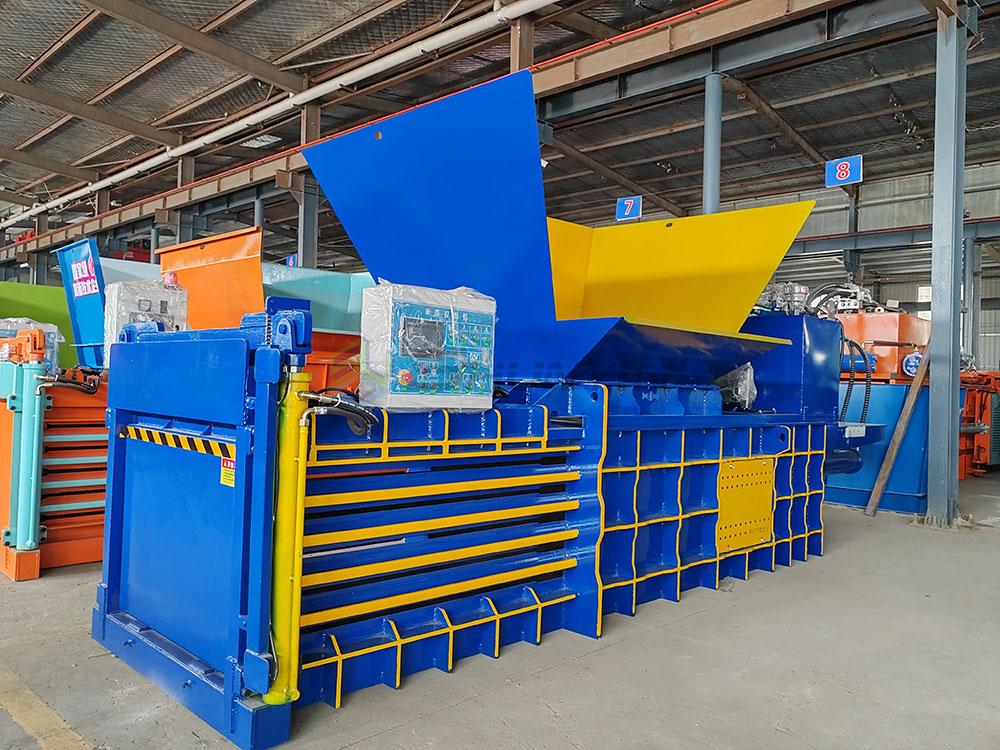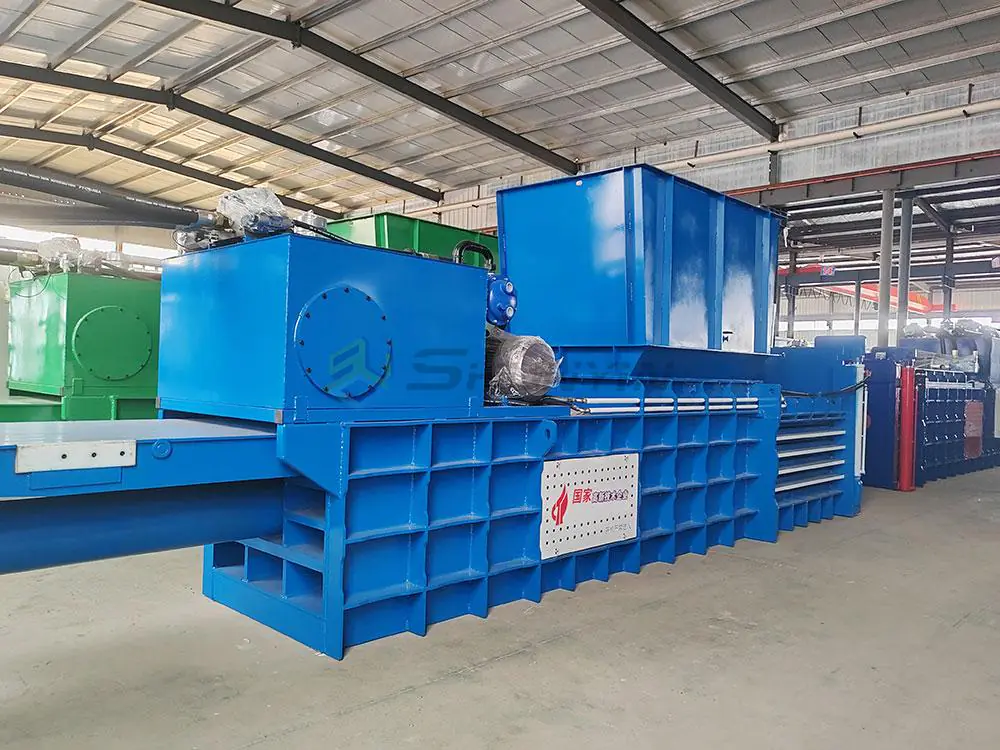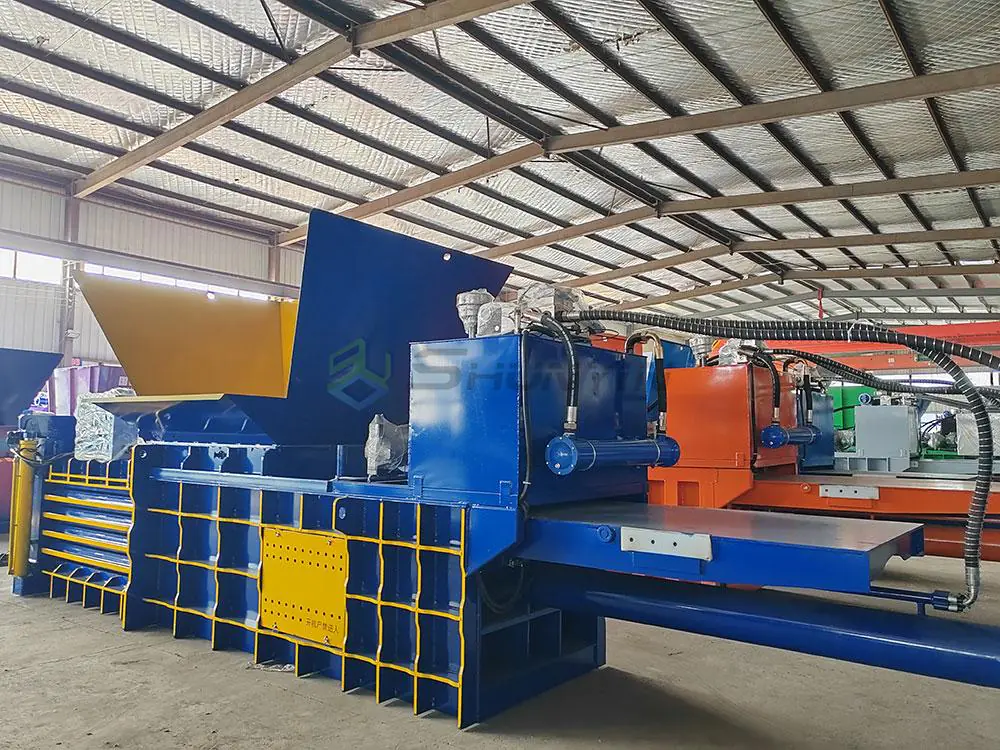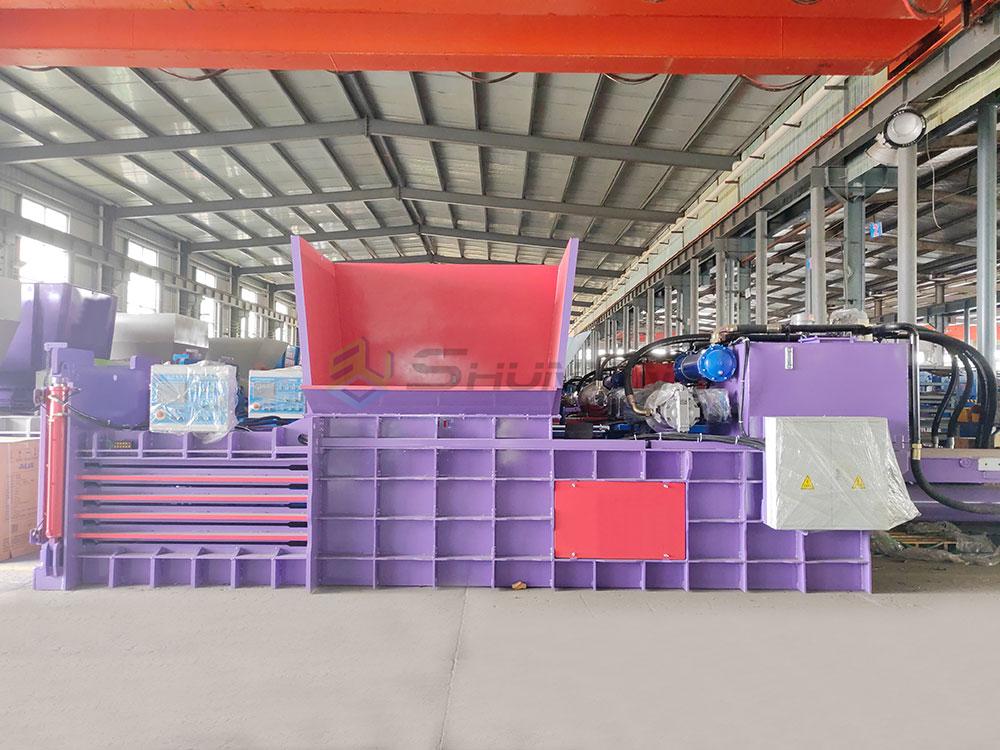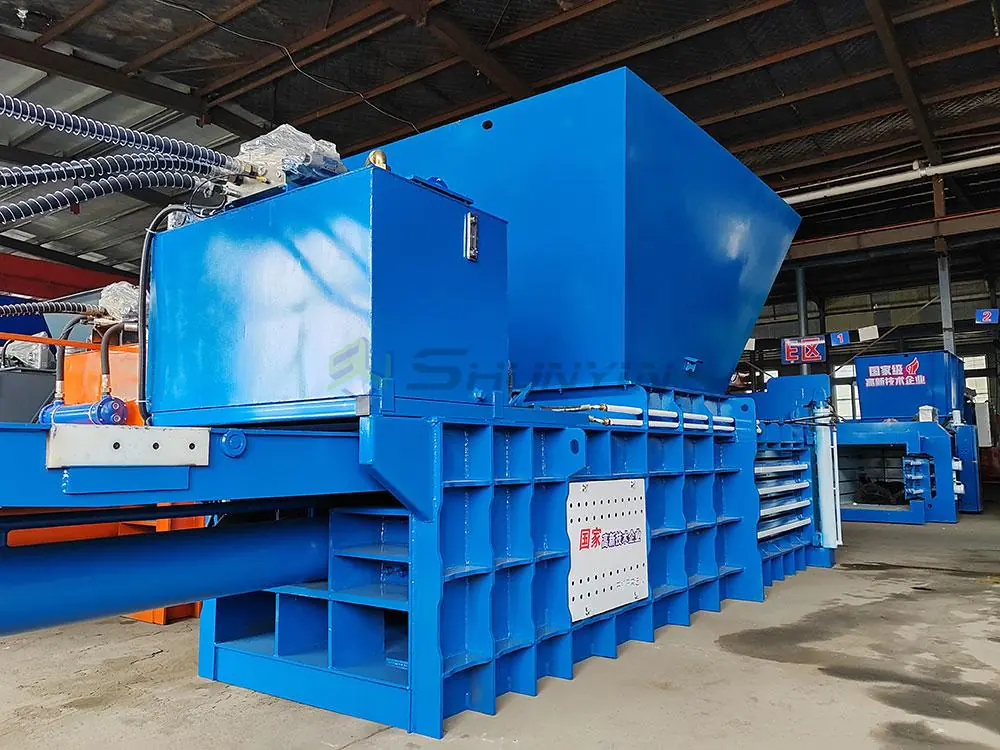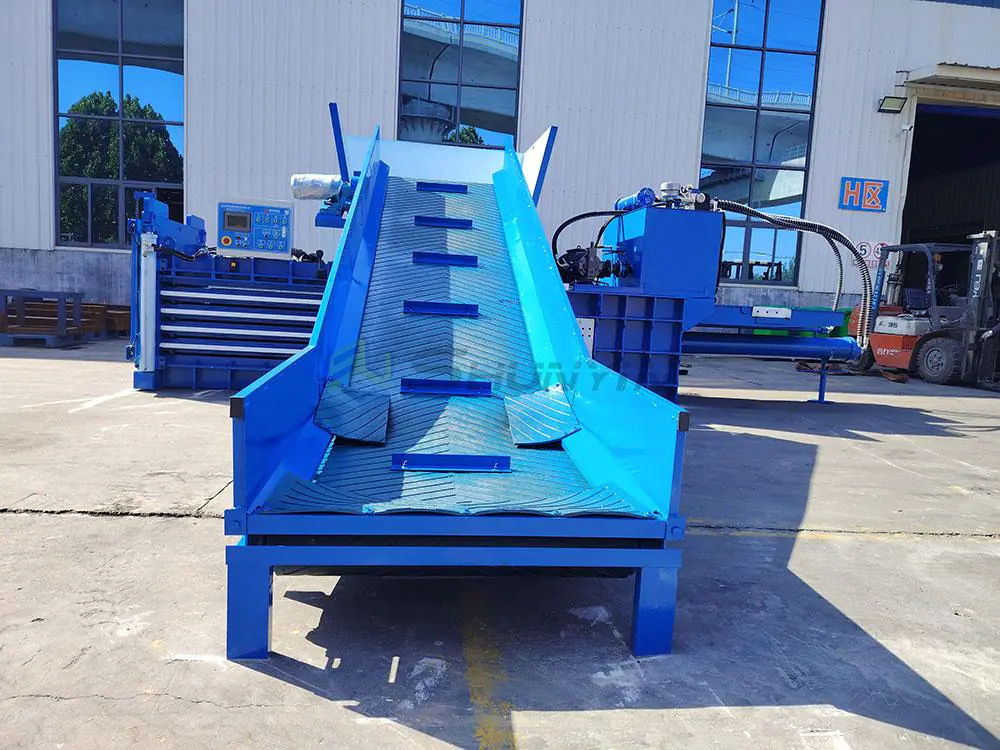Choosing the right baler affects your recycling profits every day. Many buyers feel overwhelmed by technical jargon and conflicting advice.
Horizontal balers press materials from side-to-side, handle larger volumes, and suit industrial settings, while vertical balers compress top-to-bottom, save space, and work for smaller operations.
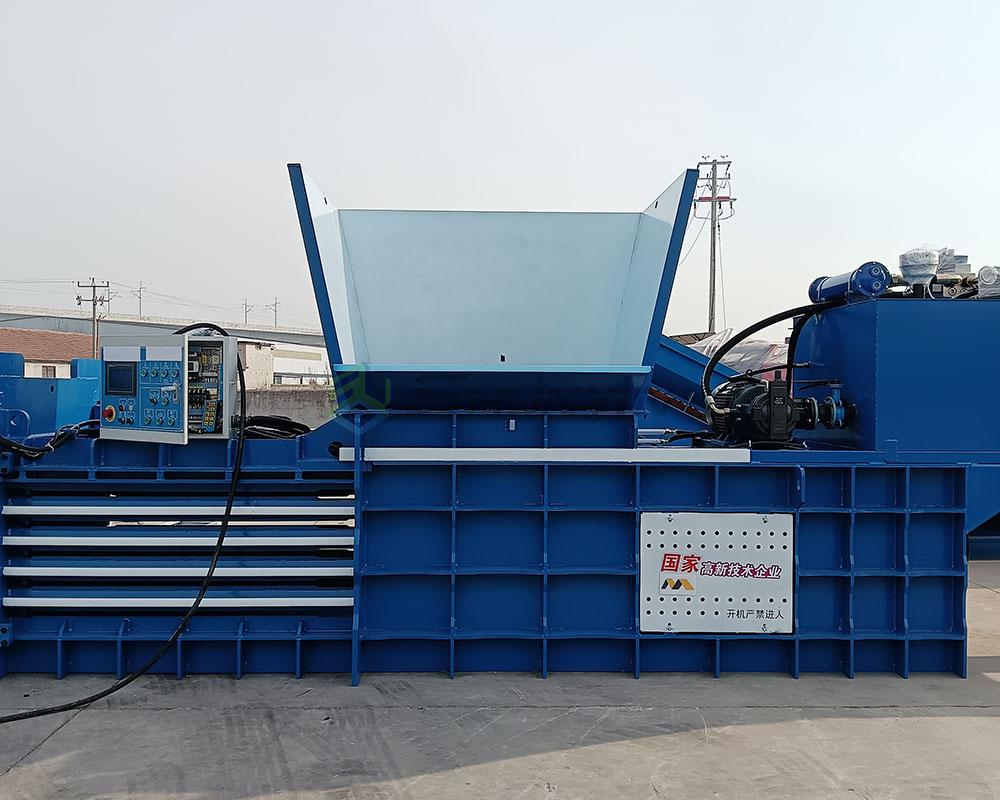
Understanding these differences saved one of our Canadian clients thousands in wasted space. Keep reading to match the baler to your goals.
What is the difference between vertical and horizontal balers?
Many confuse the two types, leading to costly buying mistakes in recycling facilities.
Vertical balers load materials from above and produce smaller bales (under 4 tons), ideal for shops with limited space, while horizontal balers feed from the side, create denser bales (up to 15 tons), and handle continuous high-volume waste.

In our factory, we categorize balers by four factors: operation direction, bale size1, footprint, and automation2.
Key Comparisons in Design and Use
Vertical balers3 need operator loading overhead, restricting height in low-ceiling buildings. Horizontal versions use conveyor feeds, cutting labor. One buyer saved three workers’ wages after switching to our automated SY-250H model.
Cost and Maintenance Factors
| Feature | Vertical Balers | Horizontal Balers |
|---|---|---|
| Footprint | 5-10 sq meters | 15-30 sq meters |
| Average Cost | $12,000-$30,000 | $45,000-$150,000 |
| Energy Use/Hour | 8-15 kW | 20-40 kW |
| Daily Capacity | Up to 10 tons | Up to 60 tons |
Larger Canadian recyclers favor horizontals for cardboard density4—our hydraulic rams5 create 25% tighter bales than competitors. Ask about torque calibration for your waste streams.
Which is the best baler?
Buyers often chase "best-rated" models, ignoring their actual workflow needs.
The best baler matches your volume, facility size, and budget—horizontal options win for heavy cardboard recycling, while verticals work better for stores with space limits under 100m².

I guided Lucs to choose our SY-300H after analyzing his warehouse height and monthly cardboard waste. Avoid generic rankings; we weigh project data.
Score Your Operation Against Three Metrics
First, measure monthly waste volume. Below 20 tons suits vertical balers; higher volumes need horizontal compaction. Second, map your building height and door widths—our Canada client needed modifications for bale conveyor access. Third, calculate payback periods. Horizontal models pay faster at scale but require bigger upfront investment.
Maintenance Lifespan Differences
Vertical balers3 last 4–7 years with basic upkeep. Horizontals endure 10–15 years using hardened steel rams. We use ISO 9001 welding on frames. Always request factory videos to confirm durability claims before paying deposits.
What is the best baler for cardboard?
Cardboard recyclers6 need density and throughput without jams from tapes or labels.
Horizontal balers work best for cardboard, compressing higher volumes into denser bales that boost resale values up to 15% compared to vertical units.

I recently helped a Japan buyer fix bale crumbling issues by switching baler types. Cardboard varies by thickness—we tailor solutions.
Optimize Bale Weights and Dimensions
| Cardboard Type | Recommended Baler | Ideal Bale Weight | Profit Tips |
|---|---|---|---|
| OCC (Loosely packed) | Vertical | 150-200 kg | Avoid over-wetting |
| Double-Wall | Horizontal | 500-800 kg | Pre-crush for consistency |
| E-commerce Boxes | Horizontal Auto-Feed | 400-600 kg | Adjust ram pressure |
Run test batches with samples—our factory ships materials for trials. Cardboard moisture affects bale integrity7; I recommend humidity sensors on in-feed sensors.
What is a horizontal baler?
Importers sometimes misunderstand specs, risking underpowered purchases.
A horizontal baler packs waste sideways using hydraulic rams that deliver high-pressure compaction, producing tightly bound bales ideal for efficient truck loading and export shipping.

One Singapore distributor cut logistics costs by 18% after I designed a bale dimension profile matching their freight container sizes.
Core Components and Functionality
Horizontal balers8 feature steel pressing chambers where hydraulic cylinders push waste with up to 120 tons of force. They generate denser bales than vertical versions for two reasons: longer compaction strokes and adjustable pressure valves.
Standard Configurations Explained
- Manual Feed Models: Operators load via conveyor belt or forklift.
- Auto-Tie Systems: Bales automatically wire-tied using internal mechatronics.
- Mobile Ram Options: Adjustable rams reposition to maximize load volume per bale.
Always check safety interlocks and CE certifications. Verify hydraulic fluid grades since cheap substitutes shorten ram life.
Conclusion
Choose vertical balers for space efficiency or horizontals for cardboard density4 and volume—either solution supports recycling margins. Connect with us today for custom quotes9.
Contact our engineering team to match your needs
-
Understanding bale size can significantly impact your recycling profitability. ↩
-
Discover how automation can streamline your baling process and reduce labor costs. ↩
-
Learn why Vertical balers are ideal for smaller spaces and operations. ↩ ↩
-
Understanding cardboard density can enhance your recycling strategy and profits. ↩ ↩
-
Explore the mechanics of hydraulic rams and their importance in baler performance. ↩
-
Explore this resource to discover effective strategies and insights tailored for cardboard recyclers to enhance profitability. ↩
-
Learn how to maintain bale integrity for better recycling outcomes. ↩
-
Explore how Horizontal balers can maximize your recycling efficiency and profits. ↩
-
Get tailored solutions for your baling needs with custom quotes from experts. ↩


